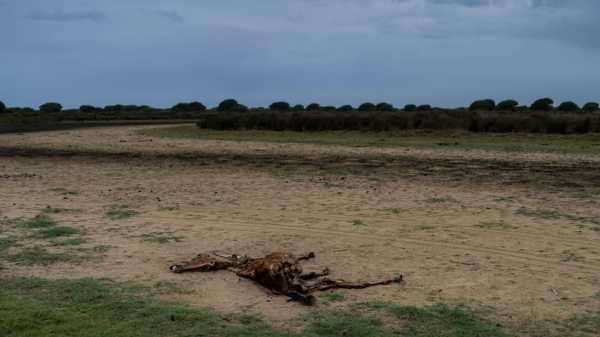
BARCELONA, Spain — The government of Spain’s southern Andalusia region plans to expand a prized national park that is home to one of Europe’s largest wetlands but is in danger of drying up.
Andalusia’s regional president Juan Moreno announced his administration’s plan to allow the Doñana park to annex some 7,500 hectares (18,500 acres) that it plans to purchase from a private owner for 70 million euros ($75 million).
Doñana currently covers 74,000 hectares (182,000 acres) on an estuary where the Guadalquivir River meets the Atlantic Ocean on Spain’s southern coast. A UNESCO World Heritage Site and Biosphere Reserve, Doñana is a wintering site for half a million waterfowl and a stopover spot for millions more birds that migrate from Africa to northern Europe.
Ecologists working in and near the park have alerted that its ecosystem made up of marshes and lagoons is at risk due to the strain on its underlying aquifer caused by agriculture and tourism. That has been made worse by climate change and a long drought, along with record-high temperatures.
However, Andalusia’s regional government also has plans in the works since last year to extend irrigation rights for farmers near the park, a move that UNESCO, Spain’s central government and ecologists have criticized for putting more pressure on the aquifer.
Spain’s Ecological Transition Minister Teresa Ribera applauded the planned expansion of the park, but she said that adding more land wouldn’t solve the problem of water scarcity in the area. She also insisted that Andalusia drop its plans to expand irrigation near Doñana.
“(The expansion) is a move in the right direction and will favor the park’s biodiversity,” Ribera said Tuesday. “(But) it will do nothing to reduce the stress on the aquifer and the water available for the park.”
___
Follow AP’s climate and environment coverage at https://apnews.com/hub/climate-and-environment
Sourse: abcnews.go.com






